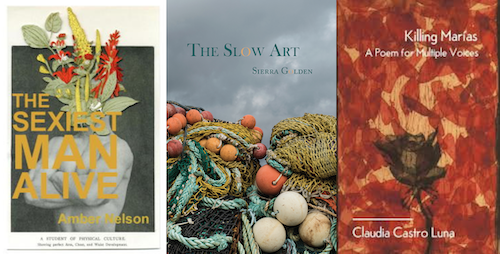These are the poetry collections that moved me most in 2018
I can't make you a list of Best Books that have been published in 2018 because I haven't read all of the books published in 2018. What I can do is reflect on the books I have read this year and let you know which of them has stayed with me — which books I'm still, weeks or months later, thinking about. To me, a book's longevity is its most important quality. I can read the most beautiful sentence in the world, but if that sentence doesn't set some chain reaction off in my mind, it's basically worthless. This week, I'm going to examine the books that really made a mark on me in one way or another — the books that changed me, the books that still live with me, the books that affect the way that I interact with the world. Perhaps you disagree, or perhaps you think some other book is way better than my selection. That's fine; send me an email or tweet at me and we can talk.

2018 has been a year for strong, voice-y poetry — poetry collections with themes to examine and stories to tell. Three local authors have put out collections this year that did all the work that we usually expect from novels: they create vibrant characters and settings, they tell stories with beginnings and middles and ends, and they examine ideas with patience and an inquisitive spirit.
Killing Marias by Washington State Poet Laureate Claudia Castro Luna is a tribute to women named Maria who have been murdered in Juárez, Mexico. Castro Luna gives voice to these forgotten women — victims of a violence that is too often used as a political tool in this country — and allows them a chance to be seen.
Sierra Golden's debut collection The Slow Art is based on the many years that she worked on an Alaskan fishing boat. Golden is a classical kind of poet: her poems are serious and sturdily constructed, and she calls back to modern greats like W.S. Merwin, but she writes about modern topics like meth use and economic disparity. In Golden, Seattle might have a shot at a working class poet — someone who sees and understands the experience of ordinary Americans and captures them in poetry. We could use a lot more of that.
The Sexiest Man Alive by Amber Nelson isn't on its surface as serious as these other two collections, but beneath its frivolous surface, Nelson is doing important work. By writing a series of poetic monologues from the perspectives of People magazine's sexiest men alive, Nelson is investigating masculinity and celebrity and what it means to be a person in an age when everyone is basically a brand, whether they want to be or not. Her examination is funny and clever and simply riveting.